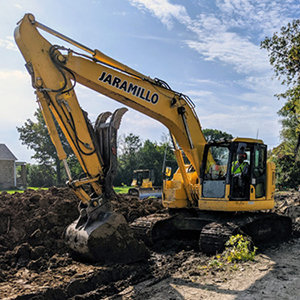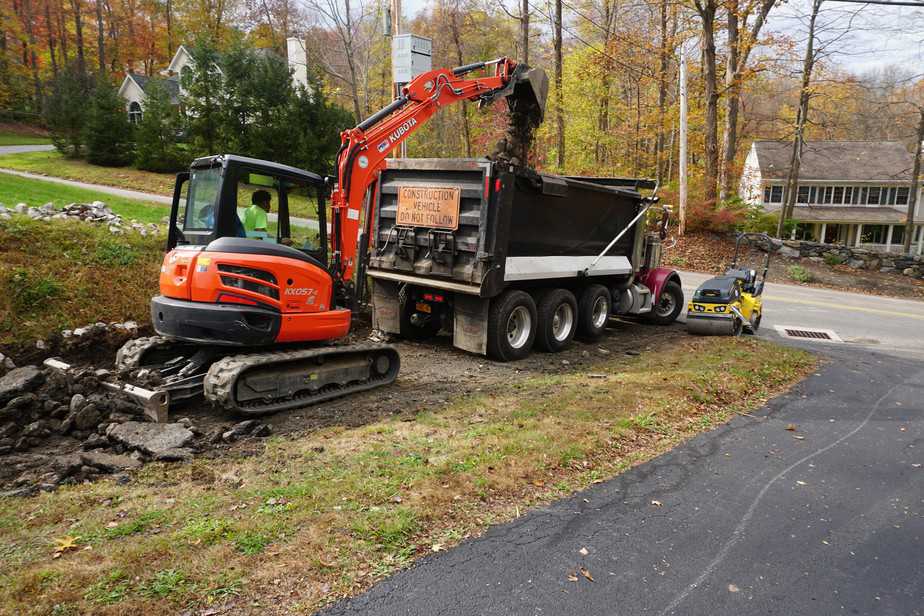Industrial Lancaster Trenching - Trenching Services for Services in Lancaster
Industrial Lancaster Trenching - Trenching Services for Services in Lancaster
Blog Article
Comprehensive Excavation Strategies: Mastering the Fundamentals for Success
In the realm of building and civil design, the significance of reliable excavation methods can not be overstated. The careful planning, exact execution, and careful interest to information required in excavation jobs require a comprehensive strategy that includes numerous essential elements. From initial soil analysis to the execution of security procedures and routine progress surveillance, grasping these core elements is important for attaining success in any excavation endeavor. The real mastery lies not just in understanding these principles however in perfectly integrating them to browse the intricacies of excavation tasks with finesse.
Recognizing Excavation Task Preparation

Effective excavation tasks are improved the structure of detailed and meticulous planning. The first stage of any type of excavation project is the drawing board, where critical decisions are made that can dramatically impact the result of the project. Throughout this stage, it is vital to collect all pertinent info concerning the site, consisting of topographical studies, dirt structure, and any type of potential risks that may exist. Recognizing the project timeline, budget plan, and scope restraints is vital for creating an extensive excavation strategy that makes certain the task's success.
One key facet of excavation job preparation is the development of a comprehensive timeline that details the series of target dates, landmarks, and tasks. By carefully taking into consideration all these variables throughout the planning phase, excavation projects can be performed effectively and effectively, leading to successful outcomes - lancaster trenching.
Dirt Analysis and Website Examination
Performing extensive dirt analysis and website examination is an essential action in the prep work phase of any type of excavation job. Soil analysis entails identifying the structure, structure, and residential or commercial properties of the dirt at the excavation site. This info is vital for understanding the dirt's bearing capability, wetness content, and potential for disintegration, which are key variables in figuring out the excavation approaches and devices needed for the job.
Site analysis goes past dirt evaluation and includes a broader analysis of the total site conditions. This analysis includes recognizing any possible threats, such as underground utilities, ecological worries, or unstable terrain, that could affect the excavation process. By completely evaluating the site, project managers can create effective excavation strategies that prioritize security, performance, and ecological defense.
Utilizing advanced innovations like ground-penetrating radar, soil sampling, and drone surveys can enhance the precision and performance of dirt evaluation and site assessment. Investing time and sources in these initial steps can eventually save time and prevent pricey delays or problems during the excavation process.
Devices Choice and Utilization
Reliable excavation jobs count heavily on tactical equipment selection you can try these out and utilization to make certain ideal performance and performance. Picking the ideal devices for the task is important in making best use of efficiency and decreasing downtime. Elements such as the sort of dirt, deepness of excavation, and job scope play a significant role in establishing one of the most suitable devices for the job available.

Along with selecting the proper tools, correct utilization is crucial to task success. Operators should be trained to handle the tools securely and successfully - dump truck companies in ohio. Normal upkeep checks and prompt repair work help protect against break downs and make certain constant efficiency throughout the task
Security Procedures and Regulations Compliance
In the world of excavation tasks, prioritizing security measures and conformity with regulations is vital to guaranteeing a legitimately sound and secure operational setting. Precaution incorporate a series of methods, consisting of performing comprehensive website analyses, applying proper signs and obstacles, and providing sufficient safety training for all workers entailed in the excavation process. Adherence to laws, such as OSHA requirements in the United States, ensures that the excavation project satisfies the needed criteria to secure employees, spectators, and the surrounding setting.

Surveillance Progression and Adjusting Approaches
Exactly how can project managers effectively track the development of excavation projects and adapt their techniques as necessary to visit this site right here enhance outcomes? Monitoring progression is crucial for making certain that excavation tasks remain on track and satisfy deadlines.

Final Thought
To conclude, mastering the basics of detailed excavation approaches is important for the success of any task. By comprehending task preparation, analyzing soil and website conditions, selecting appropriate devices, abiding with safety laws, and checking development, project managers can ensure a reliable and smooth excavation process. Implementing these techniques will cause successful outcomes and decrease prospective risks or troubles during the excavation project.
The first stage of any type of excavation project is the preparation stage, where critical decisions are made that can dramatically influence the result of the project. Understanding the task timeline, range, and budget plan restraints is vital for creating a thorough excavation plan that makes sure the project's success.
Just how can forecast supervisors effectively track the development of excavation tasks and adapt their approaches as necessary to maximize outcomes? By carefully keeping an eye on progression and being prepared to adapt techniques, task managers can improve the general success of excavation jobs.
By understanding project preparation, assessing dirt and website conditions, picking suitable devices, abiding with safety guidelines, and checking progress, project supervisors can make sure a smooth and reliable excavation procedure.
Report this page